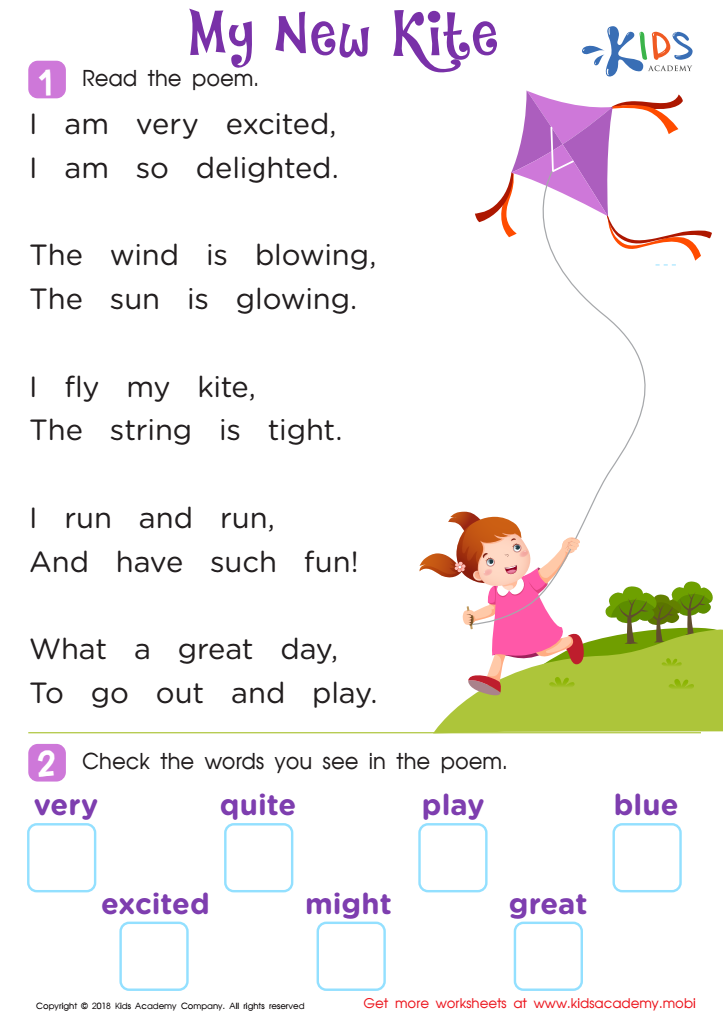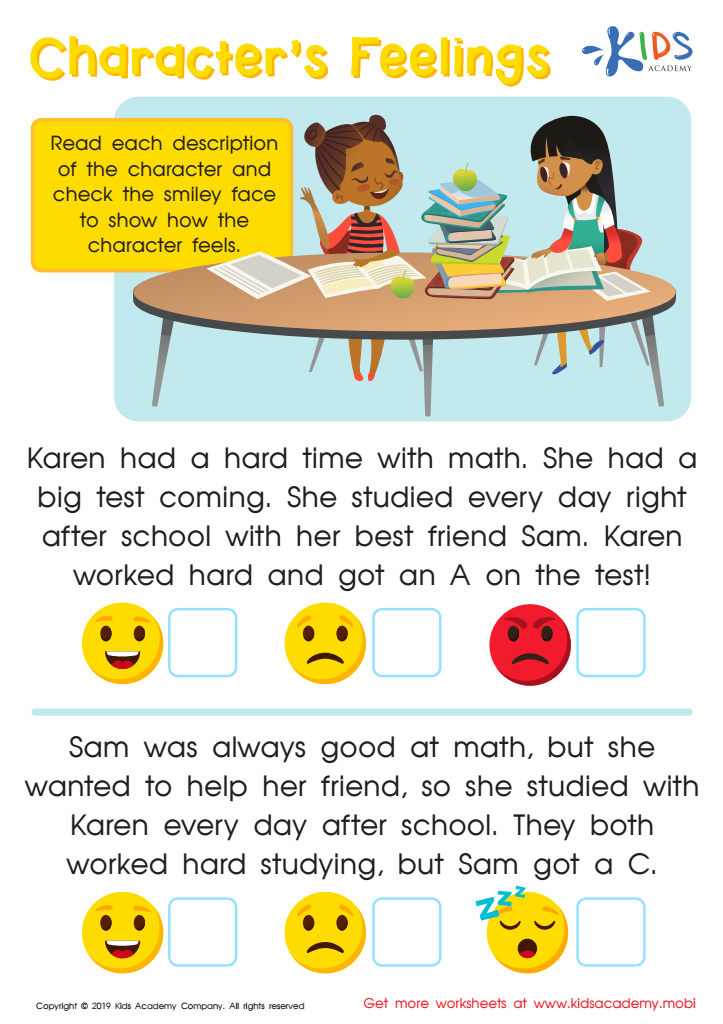Understanding emotions Worksheets for Kids
2 filtered results
-
From - To


Poem: My New Kite Worksheet


Character’s Feelings Worksheet
Question/Answer
Why is the Understanding emotions skill important for Grade 1 students?
The Understanding emotions skill is crucial for Grade 1 students because it helps them recognize and articulate their own feelings and empathize with others. This foundational social-emotional ability supports effective communication, fosters positive relationships, and aids in conflict resolution. Developing this skill early sets the stage for emotional intelligence and successful social interactions throughout their education and life.
How does the mastery of the Understanding emotions skill affect a student's performance at an early age?
The mastery of the Understanding Emotions skill at an early age positively affects a student's performance by enhancing emotional intelligence, which leads to better social interactions, improved conflict resolution, and increased empathy. These skills contribute to a conducive learning environment, enabling students to focus better, participate actively in class, and achieve higher academic success.
How to test a Grade 1 student’s Understanding emotions skills?
To test a Grade 1 student's understanding of emotions, present them with a series of pictures or scenarios depicting various emotions, such as happiness, sadness, anger, fear, and surprise. Ask them to identify the emotion shown and describe a time they felt that way. This method assesses their ability to recognize emotions and empathize with others.
 Assign to the classroom
Assign to the classroom


.jpg)









